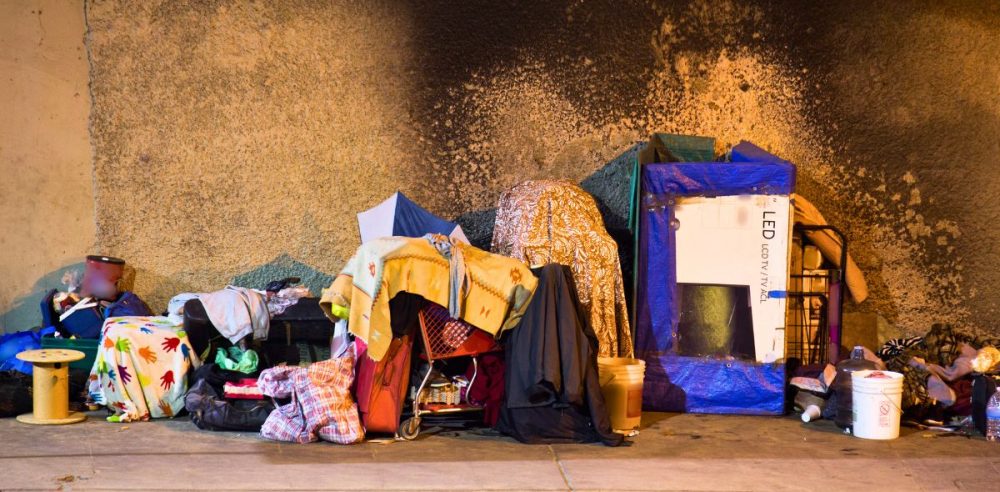All across Texas, cities are facing a crisis of their own making. The rise in homeless encampments has led to increased crime, public health concerns, and economic strain that affects families, seniors, students, and business owners alike. Too often, local leaders—more focused on ideology than on serving the public—exacerbate problems by deliberately choosing not to enforce laws related to the homelessness crisis.
Left behind by local officials, property owners are frustrated and desperate for solutions. Now there’s a way to let them fight back.
When a local government willfully fails to provide necessary services that would keep homelessness in check, property owners suffer harm. They deserve to have recourse. The Texas Legislature has the opportunity to finally hold negligent local officials accountable for not doing their job by targeting what they value the most: control over public funds.
Two proposed laws (SB 2489 and HB 4983, sponsored by Sen. Tan Parker and Rep. Daniel Alders, respectively), would allow property owners to seek compensation from local governments if their property value is diminished or they incur mitigation costs due to the deliberate failure to enforce laws related to homelessness. The legislation upholds a simple principle: residents pay taxes to local governments every year in exchange for basic services, including public safety and the protection of their property. If government isn’t providing those services, law-abiding citizens deserve their money back.
This legislation is modeled after Arizona’s Prop 312, a first-of-its-kind reform developed by the Goldwater Institute, where I work. In Arizona, the measure has already delivered results, with cities either implementing new urban camping bans or taking steps toward strictly enforcing existing laws. Empowering citizens to hold their local governments accountable has led to tangible improvements for the public. Arizona cities and towns are now proactively addressing homeless encampments, reducing the need for property owners to file a claim under the reform. There’s no doubt that similar reform in Texas could yield the same benefits.
In Austin, for example, the local government has been deteriorating the city with progressive policies that have allowed homelessness to spread unchecked. During District Attorney José Garza’s tenure, his office has refused to prosecute serious crimes, with the number of charges dropped under his leadership rising by approximately 50 percent.
Moreover, the council’s progressive policies have deepened Austin’s growing homeless crisis. Open fires regularly blaze next to residential communities, and Austin businesses are constantly dealing with homeless individuals in the downtown area due to the local government’s inaction on the issue. Recently, residents in South Austin have been forced to cope with open drug use, crime, and dangerous homeless encampments in their neighborhoods.
One resident told local reporters, “I have probably called a dozen times, but I probably should have called 40 times…. There was fire and police because we had an overdose on the street and that is becoming essentially a weekly thing here.”
Unless Texas lawmakers intervene, local officials in Austin will continue to ignore their responsibilities, harming property owners and businesses in the process.
State legislators must take bold action to protect Texans by addressing the failures of local governments to enforce the law. SB 2489 and HB 4943 would empower citizens to hold local leaders accountable, compelling them to take their oaths of office seriously. Taking a cue from Arizona, Texas can ensure property owners are not left to shoulder burden of government negligence. A strong state-level policy would not only deter cities from allowing lawlessness but also provide necessary incentives for local officials to protect public safety and property rights.
By enacting this reform, Texas can restore order and stability to urban centers, protect businesses and homeowners, and set a national standard for addressing homelessness with both compassion and accountability.
Brian Norman is the Director of State Affairs at the Goldwater Institute.


